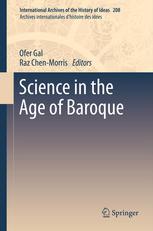

Most ebook files are in PDF format, so you can easily read them using various software such as Foxit Reader or directly on the Google Chrome browser.
Some ebook files are released by publishers in other formats such as .awz, .mobi, .epub, .fb2, etc. You may need to install specific software to read these formats on mobile/PC, such as Calibre.
Please read the tutorial at this link: https://ebookbell.com/faq
We offer FREE conversion to the popular formats you request; however, this may take some time. Therefore, right after payment, please email us, and we will try to provide the service as quickly as possible.
For some exceptional file formats or broken links (if any), please refrain from opening any disputes. Instead, email us first, and we will try to assist within a maximum of 6 hours.
EbookBell Team

0.0
0 reviewsThis volume examines the New Science of the 17th century in the context of Baroque culture, analysing its emergence as an integral part of the high culture of the period. The collected essays explore themes common to the new practices of knowledge production and the rapidly changing culture surrounding them, as well as the obsessions, anxieties and aspirations they share, such as the foundations of order, the power and peril of mediation and the conflation of the natural and the artificial. The essays also take on the historiographical issues involved: the characterization of culture in general and culture of knowledge in particular; the use of generalizations like ‘Baroque’ and the status of such categories; and the role of these in untangling the historical complexities of the tumultuous 17th century. The canonical protagonists of the ‘Scientific Revolution’ are considered, and so are some obscure and suppressed figures: Galileo side by side with Scheiner;Torricelli together with Kircher; Newton as well as Scilla. The coupling of Baroque and Science defies both the still-triumphalist historiographies of the Scientific Revolution and the slight embarrassment that the Baroque represents for most cultural-national histories of Western Europe. It signals a methodological interest in tensions and dilemmas rather than self-affirming narratives of success and failure, and provides an opportunity for reflective critique of our historical categories which is valuable in its own right.